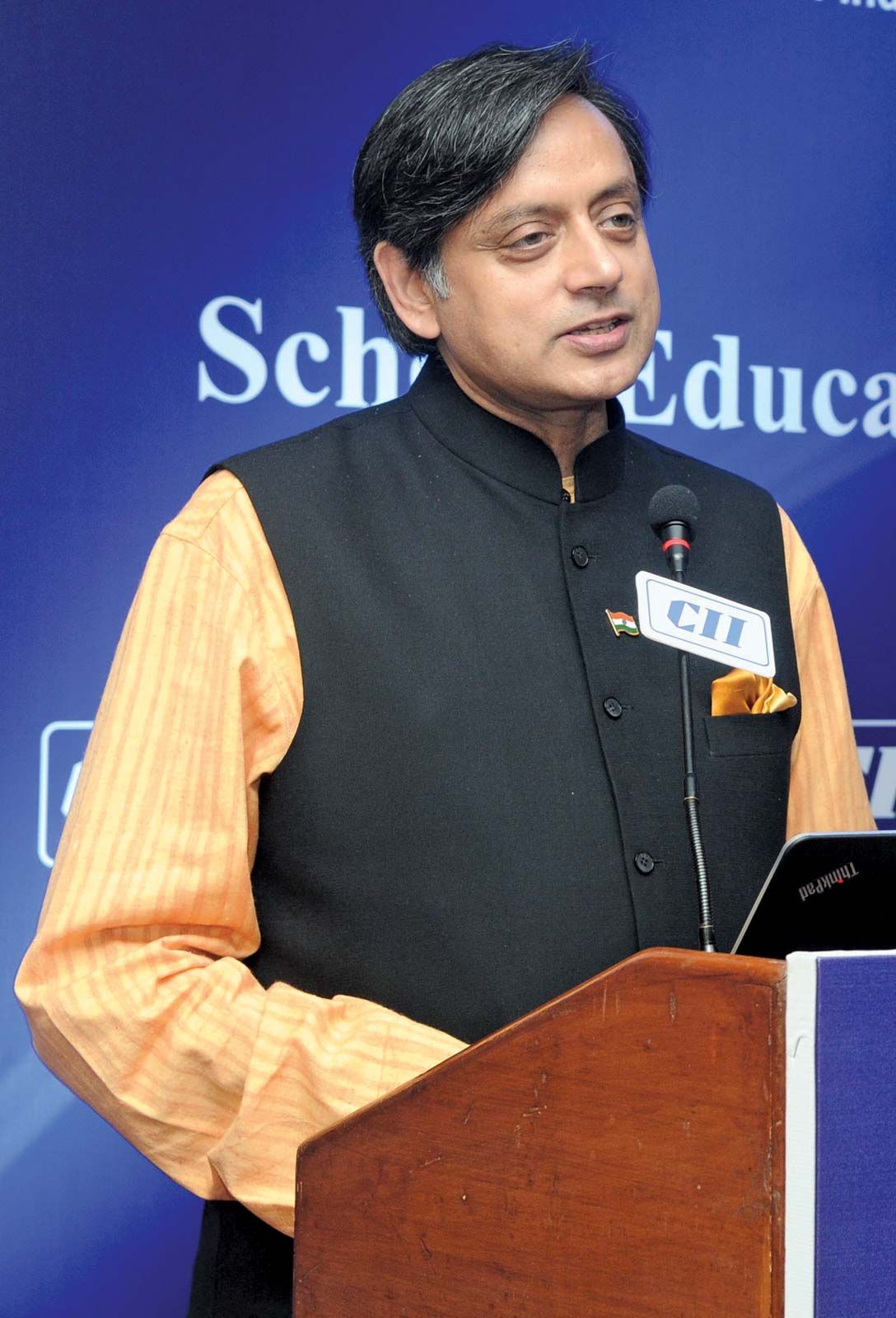


Congress leader Shashi Tharoor has slammed the central government for failing to address the alarming levels of air pollution in Delhi. Citing statistics showing Delhi as the most polluted city in the world, Tharoor expressed concern over the government's lack of action despite years of warnings. With the city's air quality reaching hazardous levels, Tharoor called for immediate measures to improve the situation.
Air Pollution Crisis in Delhi: Congress Leader Shashi Tharoor Slams Government Inaction
Congress leader Shashi Tharoor has strongly criticized the central government for failing to address the severe air pollution crisis in Delhi. The rampant air pollution in the national capital has raised alarms, with Delhi consistently ranking as the most polluted city in the world.
Background
Air pollution has plagued Delhi for several years, largely due to a combination of factors, including vehicular emissions, construction activities, industrial pollution, and agricultural waste burning. Despite repeated warnings and concerns raised by experts, the government has allegedly failed to take adequate measures to mitigate the situation.
Tharoor's Criticism
In a statement, Tharoor expressed concern over the government's inaction, stating that the air pollution levels in Delhi had reached hazardous levels. He cited statistics that showed Delhi had become "the most polluted city in the world" and that the government had "ignored years of warnings" about the impending crisis.
Tharoor called for immediate action to improve the situation, emphasizing that "the health and well-being of Delhi's citizens [were] at stake." He urged the government to implement a comprehensive pollution control plan, including measures such as banning polluting vehicles, promoting public transport, and encouraging the use of clean energy.
Government's Response
The government has yet to issue an official response to Tharoor's criticism. However, in the past, the government has acknowledged the air pollution problem and has taken some steps to address it. These measures include banning the burning of crop residues, imposing restrictions on construction activities, and promoting the adoption of electric vehicles.
Top 5 FAQs and Answers
1. What causes air pollution in Delhi?
A combination of vehicular emissions, construction activities, industrial pollution, and agricultural waste burning contributes to Delhi's air pollution.
2. Why has Delhi become the most polluted city in the world?
Years of inaction and ineffective pollution control measures have led to Delhi's worsening air quality.
3. What health risks are associated with air pollution?
Air pollution can cause respiratory problems, cardiovascular diseases, and even cancer.
4. What measures can be taken to mitigate air pollution in Delhi?
Banning polluting vehicles, promoting public transport, encouraging clean energy use, and imposing restrictions on construction and agricultural waste burning are some potential solutions.
5. What is the government's stance on air pollution in Delhi?
The government has acknowledged the problem and taken some steps to address it, but critics argue that these measures have been insufficient to improve Delhi's air quality significantly.

In a bid to promote integrity and fight against corruption, the Central Vigilance Commission has declared the observation of 'Vigilance Awareness Week' with the theme 'Our Shared Responsibility'. Health Minister JP Nadda, during the launch, stressed the need for institutionalizing ethical practices and building a culture of vigilance in every level of governance. He also urged for creating a checklist of do's and don'ts in simple terms to prevent unintentional wrongdoings.

Delhi Environment Minister Manjinder Singh Sirsa chaired a meeting to discuss ways to control dust pollution from construction activities in the city. He revealed that an extensive campaign has been launched to monitor and penalize illegal and unregistered construction projects. The Minister also directed officials to expedite field actions and simplify the registration process to ensure timely intervention against polluters.

In a press conference held in New Delhi, the Election Commission has announced phase two of special intensive revision of electoral rolls in 12 states. This comes after political parties raised concerns about the quality of the rolls. While Tamil Nadu Chief Minister MK Stalin arrived at DMK headquarters to discuss the issue, Assam's electoral roll revision will be announced separately due to the ongoing process of the National Register of Citizens. The EC has assured that there will be no obstacles in implementing the roll clean-up exercise in West Bengal.

President Droupadi Murmu addressed probationers of the Indian Police Service 77 RR (2024 batch) and emphasized the significant role that effective policing and future-ready technology play in promoting growth and attracting investment in any state. She highlighted the transformational impact of technology in the realm of policing and urged young officers to remain ahead in adopting new technologies, including AI, to combat threats to citizens. The President also encouraged ethical decision-making and accountability among young officers occupying positions of power and authority.

CEC Gyanesh Kumar has announced the second phase of the Special Intensive Revision (SIR) of electoral rolls in 12 states and Union Territories, covering 51 crore voters. He also addressed concerns over the state of West Bengal, clarifying that there is no confrontation between the Election Commission and the state government. Additionally, he reminded that Aadhaar card is not proof of citizenship, but can be used as identity proof in the SIR process.

After Chief Justice Gavai's formal recommendation, Union Government is set to appoint Justice Surya Kant as the next Chief Justice of India. With a distinguished legal career and key institutional roles, Justice Kant is highly regarded for his commitment to electoral transparency and landmark verdicts on various issues including abrogation of Article 370 and free speech. His term is expected to begin on November 24, 2025, and last for approximately 15 months.

On Monday, Union Home Minister Amit Shah inaugurated the fourth edition of the India Maritime Week 2025, where renowned leaders, policymakers, and maritime experts from India and abroad are expected to participate over the next 5 days. In his keynote speech, Shah highlighted India's growing maritime strength and strategic location, citing the government's efforts to increase port handling capacity and develop new mega and deep-draft ports. He also inaugurated state-of-the-art Deep-Sea Fishing Vessels under the Pradhan Mantri Matsya Sampada Yojna at Mumbai's Mazagaon Dock. The event, organised by the Ministry of Ports, Shipping and Waterways, is being held in partnership with the Indian Ports Association and will conclude on October 31.

The annual Chhath Puja festival has once again become a battleground for Delhi's political parties, with the AAP accusing the BJP-led government of creating an "artificial Yamuna" to cater to PM Modi's ceremonial dip while ordinary devotees are forced to pray in the highly-polluted river. While AAP leaders criticize BJP for disregarding the sentiments of devotees, the latter defends their preparations, citing "unprecedented arrangements" for the festival. However, as the parties argue, environmental reports continue to warn about the dangerous levels of pollution in the Yamuna, posing a serious threat to the health of devotees.

Prime Minister Narendra Modi took to social media to share his Diwali celebration on board the INS Vikrant with the Indian Navy. He expressed his gratitude for the opportunity and highlighted the juxtaposition of the vast ocean and Mother India's brave soldiers. The Prime Minister also witnessed an impressive Air Power Demo and participated in the Bara Khana with naval personnel.

The Mahadev Khola Dham Welfare Trust in Meghalaya has accused local authorities of violating the rights of the Hindu community during Diwali celebrations. The Trust claims that an order issued by the Deputy Commissioner of East Khasi Hills, ordering the closure of a shop selling puja materials, infringes on their constitutional rights. The Trust, which has been a place of worship for over a century, argues that this order was made without proper notice or verification and goes against earlier permission granted for the shop to operate during the festival. They have appealed for the withdrawal of the order and the safeguarding of their religious and cultural heritage.